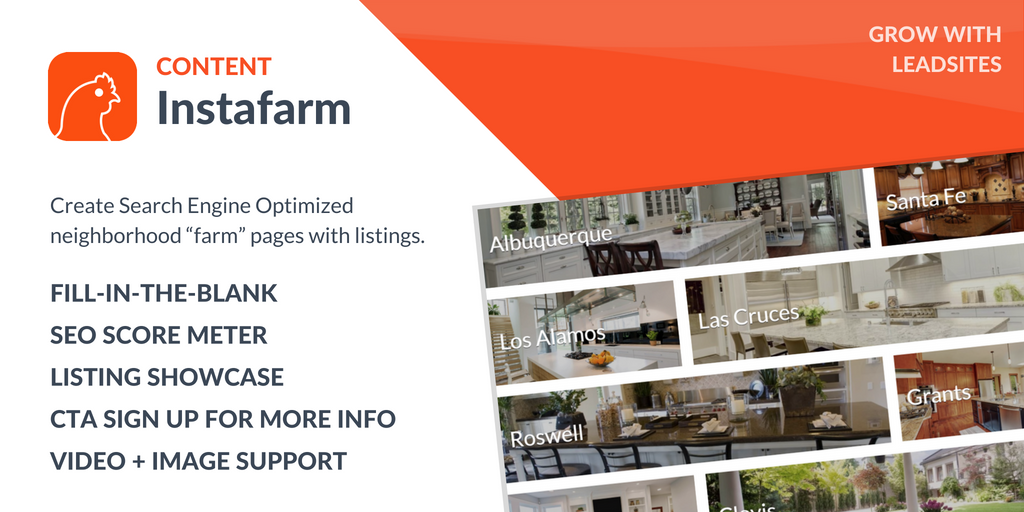Digital real estate marketing strategies for 2020: Part II
2020 is right around the corner! What are the most important factors when considering digital marketing strategies for real estate agents?
The second in our series on digital marketing strategies for real estate agents, today we’re concentrating on real estate websites (check out Part I, here)
A couple of months ago we suggested various tweaks for EAP websites. You can find the homepage hack here, testimonial page suggestions here and how to rock your About Me page, here.
A recent NAR survey (Real Estate in a Digital Age 2019) finds that 44 percent of homebuyers’ hit the internet as their first step when they decide to buy a home. In fact, these consumers listed “websites” as their number one source for real estate information.
Video sites, by the way, ranked last on the list of online sources they chose to view. In fact, non-digital sources, such as yard signs ranked higher.
It doesn’t take a genius to understand that when a house hunter is looking for homes on a “website,” that site is most likely Zillow.com or one of the other major portals.
But for so many reasons, this doesn’t mean agents shouldn’t have a real estate website and ensure that it’s optimized for local search.
In a nutshell, a real estate website is the cornerstone of successful digital marketing strategies for real estate agents.
Let’s take a look at the must-haves for every real estate website.

A lead-generating website is useless if nobody visits. Getting them there is your first job and, thankfully, there are several tried-and-true ways to do so.
The least expensive is blogging. If you have an Easy Agent Pro site, that one is done for you. If you don’t, create a blog on your site as soon as possible.
If you aren’t willing or able to post at least twice a week to your blog, you aren’t allowed to complain about Zillow, Realtor.com, Trulia or Redfin “stealing” all the first page search results.
As Tyler reminded you awhile back: “Google loves fresh content on websites. It’s quite telling that all of these sites publish at least 2 blog posts per week on their sites.”
Get busy populating it with useful information for each stage of the buying and selling process and homeowner and hyper-local pieces to nurture those in your sphere.
Then, publish links to these posts, with compelling headlines (read this brilliant tutorial to learn how) to social media – especially LinkedIn and Facebook. If you have the time, consider Pinterest.
Another inexpensive way to drive more traffic to your blog (thus, your website) is by improving your organic reach. SEO is still the name of the game for those agents hoping to outrank the big guns for local search.
Neighborhood information pages fit the bill here.
A recent Engel & Völkers’ data report of HENRYs (millennials who are “high-earning but not yet rich”) finds that one of the top three factors they consider when choosing a real estate agent is “local neighborhood expertise.”
Learn the basics of SEO so you can DIY the project, or hire someone to optimize your site for you.

Finally, get your site optimized for mobile search. Why?
According to a Hitwise report, 48 percent of real estate-related searches happen on mobile devices.
Not only that, but the experts at Statista.com find that “users on handheld devices are more likely to conduct local searches, seeking information distinct to the area where they are searching from.”
And “local searches” is where you want to be found, right?
If you have an EAP website, again, this is done for you. Refer to Tyler’s infographic, here, if you need to know more.

So, you’ve increased your website traffic; now you need to figure out how to keep them on your site long enough to convince them to work with you or to take some other desired action.
While it’s not exactly sexy, your site’s load time is the first determinant of whether a visitor will stay or bounce.
According to a recent Adobe study, 51 percent of consumers said they would click away from a site that took too long to load.
How long is too long?
Depends on the viewer, but a Kissmetrics.com study finds that at 3 seconds, they’re outta there. Easy Agent Pro LeadSites, by the way, have an average load time of less than 2 seconds.
Not only does a slow-loading site impact your visitors’ experience, but Matt Cutts cites “site speed as one of the over 200 signals that we [Google] use in determining search rankings.”
Get tips to ease your need for speed here.
Real estate websites are the backbone of digital marketing strategies for real estate agents, and there’s lots more to learn.
For instance, what should be on your homepage? You’ll also learn about common website mistakes far too many agents make with their sites (with examples) and how to use your site to convert leads.
Check back soon for digital marketing strategies for real estate agents – real estate website edition!
Looking for something simple to get you started? Here are 5 marketing ideas you can do from your phone:

Want a checklist of what to do for online real estate marketing? Here's your guide! I break down exactly what you need to be doing (and how to do it).
June 9, 2015

Client retention is SO important in real estate, and helping out on moving day is a great way to help yourself stay top-of-mind with your clients. Here are some ways you can make the moving process easier:
August 20, 2020

Real estate marketing handouts are a great way to stand out from the slew of always-digital agents. Here's everything you need to know to start marketing, analog style
August 29, 2019
Let’s boost your lead gen.